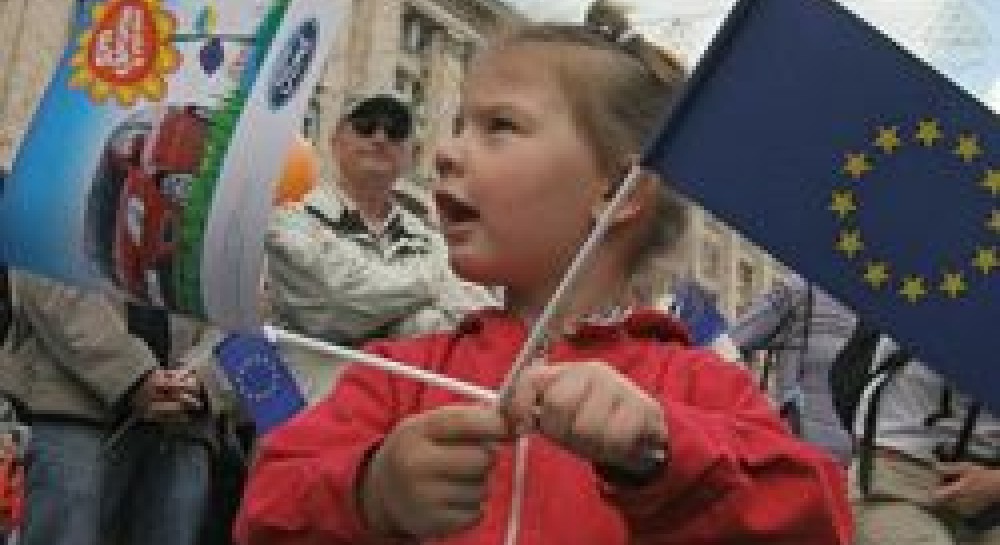
Ukraine pushing for closer ties with EU
Ukraine sees September summit as “moment of truth” about its relations with the EU. Minds in Ukraine are already focusing on what may be achievable in the short run, but the hopes may yet be dashed...
Ukraine`s prime minister, Yulia Tymoshenko, has said she expects the country`s next annual summit with the EU, scheduled to take place on 9 September in France, to advance her country`s progress towards the long-term goal of entry into the Union.
“We expect some sort of political association which would help us in our bid for EU membership,” she said on 12 May in an interview in Kyiv.
A clear majority of Ukrainians want to see their country enter both the EU and NATO.
However, while the 9 September summit, at Evian on the southern shore of Lake Geneva, is already focusing minds in Ukraine on what may be achievable in the short run, it has also raised hopes which may yet be dashed.
The EU is currently lukewarm about the idea of membership for Ukraine, a sprawling country of almost 50 million people that has only recently begun reforming its creaking Soviet-era economy. That was reflected in comments by Ian Boag, the head of the European Commission`s delegation to Ukraine, who said that the EU was willing to offer Ukraine a “much closer partnership”. That falls far short of local expectations.
The French government, which will hold the EU`s presidency in the second half of this year, is looking to upgrade relations with Ukraine, outlining a number of ideas for a new, enhanced agreement with Ukraine in a recently circulated draft. Among the ideas is the creation of a free-trade zone. But while that would benefit Ukraine, it would not advance its aspiration to enter the EU.
To drive home the point, Boag said: “This agreement is not a stepping stone for membership in the EU.”
Ukraine`s chief negotiator for the agreement, Kostyantyn Yeliseyev, conceded that Ukraine still needed to undertake “painful reform” but also called for a change of mentality within the EU with regards to Ukraine, adding that “stereotypes” and “hypocrisy” persisted in certain member states about his country and its role in Europe. Yeliseyev, who is a deputy foreign minister, said that the September summit would be a “moment of truth” for the two sides.
While achieving free trade between the two sides will be a major challenge for Ukraine`s economy and its diplomats, the toughest task may well be to agree a preamble to the agreement. Ukraine will expect it to state, for the first time, that Ukraine is, in principle, eligible for membership, which the EU will find very difficult to agree to. “Without this point, the agreement has no added value for us,” Yeliseyev said, adding that free trade would be a key driver of reform in his country.
The desire for closer ties with the EU, and specifically for a membership perspective, came across loud and clear from both the administration of President Viktor Yushchenko and the government led by Tymoshenko, two centres of power in Kyiv that have been at loggerheads over many other issues. The two leaders have had a stormy relationship ever since they gained power in the “Orange Revolution” in late 2004 but fully agree that Ukraine`s long-term future lies in the EU.
The president`s chief foreign-policy adviser, Oleksandr Chalyi, said: “No other idea receives the same level of support [in Ukraine] as the idea of European integration.”
He added that the new agreement with the EU “will not be a neighbourhood agreement.” The Ukrainian leadership resents its participation in the European Neighbourhood Policy, saying that Ukraine is not a neighbour to Europe but part of Europe and that the mechanism`s chief aim is to keep would-be members at arm`s length.

